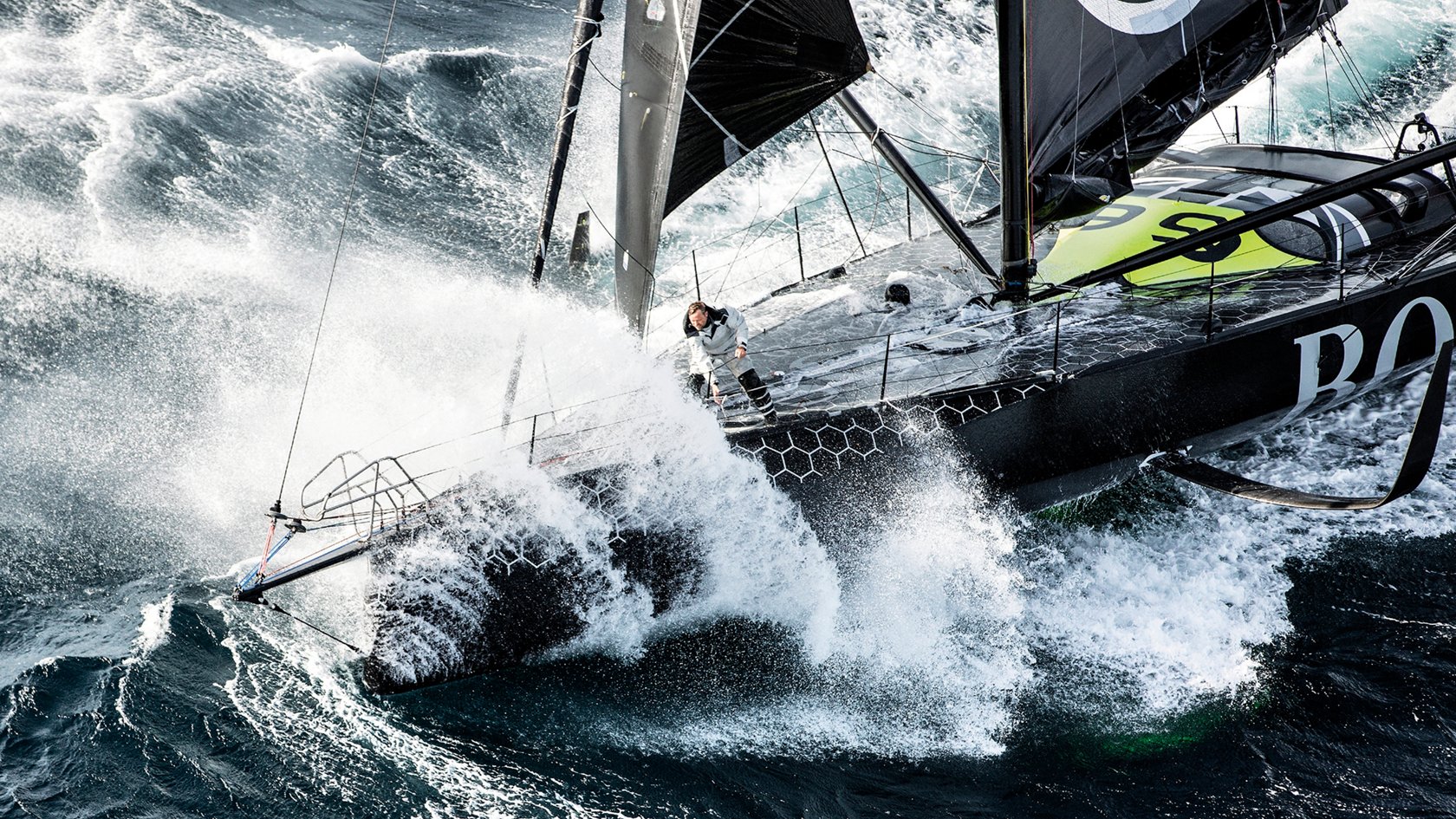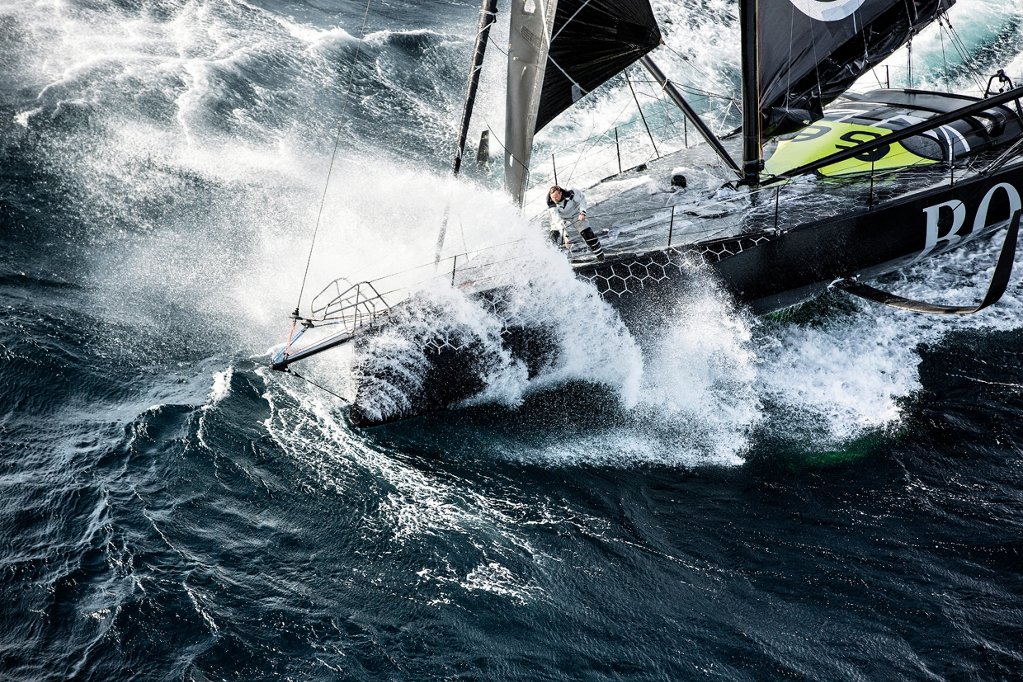

Preparing for the ultimate challenge
The Yachtsman reveals how he prepares physically and mentally to sail single-handedly, non-stop around the world, and why he’s confident he can claim victory.


Alex Thomson: in his
own words
-
The Vendée Globe takes almost three months: how do you prepare yourself physically for such a demanding race?Working on a 60-foot boat demands a lot of upper body work. During the race, I’ll lose a lot of muscle mass on my legs as I just won’t be using them. We work in very confined spaces, dragging sails that weigh between 80 and 100 kilos without being able to stand up. In order to prepare, I spend around 10 hours a week in a gym.
-
What about mental preparation – do you use a sports psychologist or mental coach?Yes, I work with sports psychologist Ken Way. He’s also the psychologist for Leicester City football team, which won the Premier League title last season. In a solo race like this, there isn’t the security of having someone there to share the highs and lows with. We practice visualisation exercises to keep my demons at bay. I visualise being above the boat, which allows me to see that there are no obstacles in my way. This helps to calm me down. It can be quite scary on deck, and when the adrenaline’s pumping to keep you focused – and ultimately alive – it can make it very difficult to sleep.
-
That sounds incredibly tough. What do you actually enjoy about the race?The Vendée Globe is, without doubt, one of the toughest challenges on the planet. Races don’t get any bigger or more demanding than this. It’s all about pushing yourself to the limit and testing your skills and capabilities. Anything can happen – it’s an unpredictable race. So many things can go wrong, but for me it’s the one race that I’d like to win over any other.
-
How important is your team for your overall preparation and performance?They are pivotal to what I do. I might be the one on the boat doing the sailing, but I have a whole team behind me who work tirelessly to ensure that I, and the boat, make it around in one piece. Any victory is one for the entire team.
-
Tell us about the relationships with the other skippers and teams – is there much camaraderie or are you all rivals?The relationship between the competitors is very unique. During preparation for the race, we don’t spend much time with each other. However, there is a different side to the initial competitiveness. In the Southern Ocean there are no shipping lanes, no rescue services or helicopters – the only people who can help you in an emergency are your fellow competitors. So there’s definitely camaraderie as well.
-
What sort of things can go wrong at sea?Absolutely anything. You can hit foreign objects in the water and be forced to make emergency repairs, or worse, retire altogether; your communications system can go down, which means you have no means to communicate with your team and loved ones; you could injure yourself on board and have to tend to your own injuries. So much can happen. This is why it’s arguably the most challenging and dangerous sporting event on the planet.
-
So just finishing the race is a major achievement?Absolutely! My friend Sir Robin Knox-Johnson, who was the first person to sail single-handedly non-stop around the world (2), once said: “To finish first, first you have to finish.” There’s a good reason this race is known as the ‘Everest’ of sailing. Currently only 50% of attempts to complete the race have been successful.
-
How would you describe a ‘typical’ Vendée Globe day? Is there such a thing?No two days are the same. I am constantly adapting and changing to the environment. I spend a lot of time in the navigation area reading the weather and planning my route. There are two things I have to do every day: manage my sleep pattern and regulate my food intake. On average, I sleep 20 to 40 minutes every three to five hours. I am able to skip one or two sleeps but any more than that and it becomes dangerous. As far as good goes, I eat a balanced diet of freeze-dried meals. In the extreme conditions of the Southern Ocean, I’ll be consuming up to 7,000 calories a day. But I’ll still lose weight. In the 2012/13 edition of the race, I lost just under 8 kilos. We like to joke that it’s the world’s most expensive and extreme diet!
-
Is there something you can’t live without during the three months at sea – any particular items you always take with you?I take laminated pictures of my family to remind me of home. To give myself a break I might read a few pages of a book or watch the start of a movie, although I often tend to just listen to the boat. As it’s carbon, whenever anything goes wrong, you will be able to hear it first.
-
And what do you miss most while you’re competing?My family, without a doubt. There are times when I feel lonely and I miss them dearly. But at times like that, I have to remind myself that it is my decision to do this and to put myself through the challenge. My wife, Kate, deals with my absence brilliantly, so I’m very lucky. She doesn’t like me being away but now at least she has the kids to keep her company when I’m not there.

